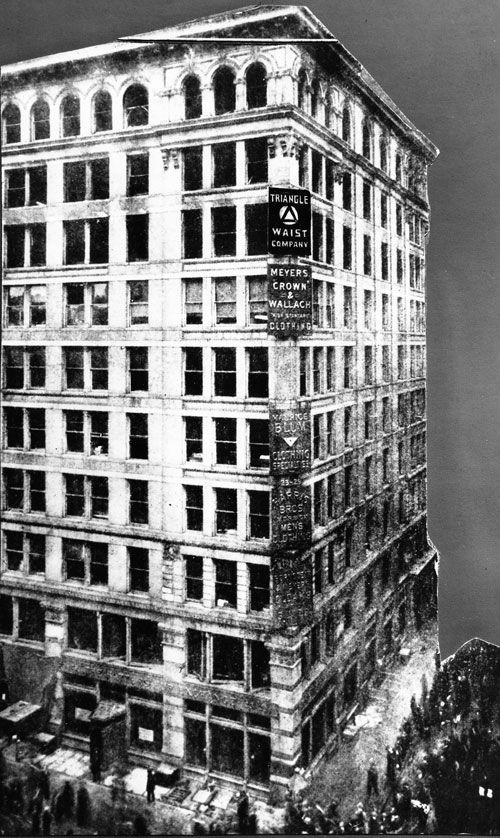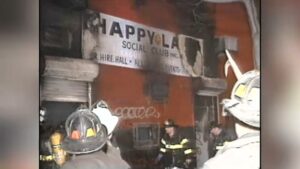For one thing, it’s a widely used and generally accepted treatment for Ebola (remember that?) as well as Junin, Lassa Fever, MERS, and SARS.
Medically oriented NGOs were livid and they get most of their money from very rich and powerful people (despite the late night TV begging) with whom they have a close relationship. I can’t imagine any of their sponsors putting the screws to Gilead because that would be tin foil hat conspiracy theory stuff.
Which is explicitly allowed here mind you, I just don’t want to get the reputation for it.
Public Pressure Works: Gilead Asks FDA To Rescind Orphan Drugs Designation For Possible COVID-19 Treatment
by Mike Masnick, Tech Dirt
Wed, Mar 25th 2020
Earlier this week, we wrote about the sham orphan drug designation that the FDA gave to Gilead Sciences for remdesivir. As we explained, remdesivir was developed with mostly public funds, and Gilead Sciences already held three patents on it, with a fourth one pending. Orphan drugs designations are supposed to be extra incentives for drug makers to target rare diseases. The issue here was that part of the definition of a rare disease under the Orphan Drugs Act is that it has to affect fewer than 200,000 people in the United States. Ridiculously, the law does not take into account the rate at which the disease spreads — just how many people have it at the time a drug maker requests the designation. Even worse, the law explicitly says that the FDA cannot remove the designation if the affected group later grows to over 200,000.
Over the last few days, anger continued to grow at Gilead and the FDA — including with the news that the FDA won’t even say when Gilead applied for Orphan Drug status, because that’s apparently “a commercial secret.” Either way, this morning a ton of public interest groups, organized by Public Citizen, sent a letter to Gilead asking it to renounce its claim for orphan drug status.
…
And here’s the crazy thing. It worked!Almost immediately after that letter was sent, Gilead announced that it has asked the FDA to rescind the designation.
Well, that’s a bit optimistic though I don’t think the Public disapproval and activism hurt, even if it only made the immorality of this clear.
And to be fair Gilead did offer this defense:
Among the benefits of orphan drug designation, this status results in a waiver of the requirement to provide a pediatric study plan prior to the submission of a New Drug Application – a process that can to take up to 210 days to review.
Gilead recognizes the urgent public health needs posed by the COVID-19 pandemic. The company is working to advance the development of remdesivir as quickly as possible.
This is not a new drug. It was developed by the United States Government. It is approved for a wide variety of treatments and has been for years. I don’t know for a fact (not a Doctor) but I would imagine there’s some study somewhere that meets that “Pediatric Plan” thing. They already give it to kids (or don’t, not a Doctor) based on that. You need another 210 Days? Rings a little hollow dudes.
In any event I don’t think Gilead had a sudden attack of altruism.
Gilead Sciences Backs Off Monopoly Claim for Promising Coronavirus Drug
by Sharon Lerner, The Intercept
March 25, 2020
Gilead Sciences on Wednesday announced that it has submitted a request to the Food and Drug Administration to rescind the exclusive marketing rights it had secured for remdesivir, an antiviral drug that shows promise in treating Covid-19, the disease caused by the new coronavirus. As The Intercept reported on Monday, the FDA had awarded Gilead seven years of exclusive marketing rights to the drug through the Orphan Drug Act, even though the statute was designed to induce pharmaceutical companies to make treatments for rare diseases that affect fewer than 200,000 people in the United States.
Although the new coronavirus will almost certainly infect that many people, Gilead had exploited a loophole that grants orphan drug status if a company files for it before the official number of cases hits 200,000. As of Wednesday afternoon, there were more than 438,000 confirmed cases worldwide, with more than 59,000 in the United States.
…
Still, public health experts remain concerned about the potential for Gilead and other pharmaceutical companies to engage in price gouging during the global pandemic. And while pharmaceutical companies are testing dozens of drugs as potential vaccines and treatments for the new coronavirus, some legal scholars have pointed to an obscure statute to help ensure that companies won’t price critical drugs out of reach.The law, known as Section 1498, gives the government the right to override a patent at any time as long as the company receives “reasonable compensation.” Essentially functioning as a kind of eminent domain for patented products, the provision breaks the monopoly and permits low-cost competition. And if drugs such as Gilead’s antiviral remdesivir and other potential treatments and vaccines for the coronavirus are priced out of reach, it could give the government critical leverage to negotiate lower prices. Through the Defense Production Act, the government could even start producing lifesaving treatments itself.
…
The federal government regularly used Section 1498 in the 1960s and 1970s to purchase generic drugs when the patented versions were far more expensive. But pharmaceutical companies railed against the provision and while it has been used for other inventions it has rarely been used for drugs since. In 2001, during the anthrax scare, just the threat of using 1498 proved effective when the government was trying to secure access to the antibiotic ciprofloxacin, which could be used to treat people who were exposed to anthrax. After then-Secretary of Health and Human Services Tommy Thompson raised the possibility of using the provision, Bayer cut the price of ciprofloxacin in half.In 2017, a group of academics at Yale Law School made the case for the government’s use of Section 1498 to procure a lifesaving treatment for hepatitis C called Sofosbuvir, also manufactured by Gilead, which is too expensive for many people who need it. Sofosbuvir costs $48,000 for a 24-week course, or about $1,000 a pill. Because of the exorbitant price, insurers have refused to cover it for all of the roughly 5 million people infected with hepatitis C, instead making the drug available to only the sickest patients.
Gilead, which is valued at more than $100 billion, has repeatedly come under fire for its pricing. Although its preventative HIV drug Truvada costs only $6 to manufacture, it costs almost $2,000 a month in the U.S — out of reach for many people who could use it to avoid infection.
“Gilead is notorious for price gouging,” said Rizvi. “Gilead holds the key to bringing down and ending both HIV and hep C epidemics, and in both cases, prices have played a real factor in our inability to stop both epidemics. And that’s terrifying.”
Joseph Grogan, who has led the Trump administration’s efforts on drug pricing in addition to serving on the White House coronavirus task force, served as head of federal affairs for Gilead from 2011 to 2017, while it was setting prices for both drugs.
Oh, straight up Graft. What else?


 Some of the most important changes that resulted from the tragic deaths at the
Some of the most important changes that resulted from the tragic deaths at the 